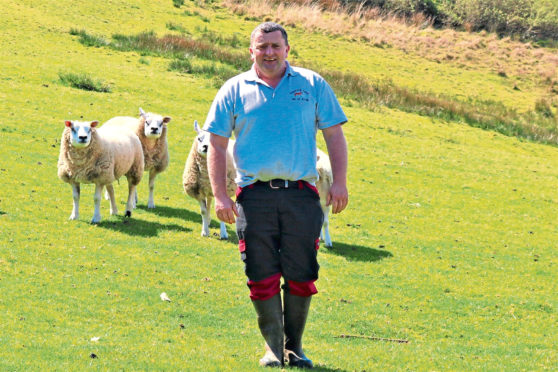A group of farmers on the Isle of Arran is working to develop a blueprint for Scottish agriculture to reduce its greenhouse gas emissions.
The farmers are working together, as part of a Soil Association Scotland-led Rural Innovation Support Service (RISS) project, to try to reduce their carbon footprint.
They are using a tool developed by SAC Consulting, named AgreCalc, which measures and benchmarks a farm’s methane, carbon dioxide and nitrous oxide emissions. It also measures how much carbon a farm is capturing.
Alexander Pirie from SAC Consulting, who is leading the Net Zero Arran project, said: “My hope is we can reduce the carbon footprint of the island if we can quantify it and that by identifying common areas for improvement, we can take a collaborative approach.
“By tackling issues around farm efficiency and best practice as well as the environment and climate change, with an emphasis on building strong local community engagement, Arran could contribute in some small way to the solution for Scotland as a whole.”
He said the project was drawing on data from various sources including the Beef Efficiency Scheme, and farmers were in the process of collectively doing things to reduce their emissions.
“Common areas for improvement are things like fertiliser applications, increasing lambing percentages, fertility MoTs for breeding potential and increasing biodiversity on farms,” added Mr Pirie.
Arran farmer David Henderson, who runs a beef and sheep enterprise at Kilpatrick Farm, is involved in the project.
He said: “I have done our carbon audits and our emissions were good, partly due to our stocking rates. But I’m in the group to learn.
“We know that future farm programmes will be based around carbon footprints, whether we like it or not, so the question is, how do we adapt? Farmers need to work together more, and be more open about the good and the bad.”
The Net Zero Arran project will be discussed in a virtual workshop later this month, along with a project to bring commercial apple growing back to Scotland.
The free workshop – Futureproof your Farm: How to adapt your farm business to the Covid-19 and climate change crises – takes place on Wednesday May 20, from 9.30-11.30am.
People are asked to register in advance here.
